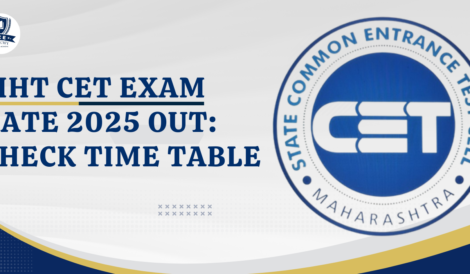Table of Contents
The IMU CET (Indian Maritime University Common Entrance Test) stands as a beacon for those aiming to set sail in the maritime domain. As the number of candidates vying for a spot increases, the challenge to outshine intensifies. This underscores the importance of a robust IMU CET preparation plan. Whether you’re charting your course for the first time or recalibrating your study strategy for the IMU CET Exam, this guide promises to be your trusted compass, ensuring you navigate the preparation waters with confidence and precision.
The process on how to prepare for IMU CET exam begins with a clear understanding of the exam pattern and syllabus. Familiarize yourself with the type and nature of questions asked. A deep dive into previous year question papers and mock tests will steer your preparation in the right direction, allowing you to identify your strengths and work on your weaknesses.
Understanding the How to prepare for IMU CET Exam
Know the Exam: The IMU CET is more than just a series of questions; it mirrors the high standards and expectations of the maritime industry. Recognizing the weight of this exam can provide clarity and motivation. It’s not just about answering questions but understanding the essence of the maritime domain. To prepare effectively, it’s crucial to delve into the exam’s structure and pattern. This will allow you to anticipate the type of questions and the areas of focus, enabling a more targeted study approach.
Syllabus Breakdown: At first glance, the IMU CET syllabus might appear as vast as the ocean. But, much like navigating the seas, having a clear map (or in this case, a breakdown) can simplify the journey.
| Core Subjects | Importance |
|---|---|
| Mathematics | Fundamental for calculations and problem-solving in maritime tasks. |
| Physics | Essential for understanding the mechanics and principles of maritime operations. |
| Chemistry | Vital for understanding materials, fuels, and reactions in the maritime context. |
Along with these fundamental topics, it’s critical to prioritize subjects like English, which measures your ability to communicate, General Knowledge, which measures your familiarity with the outside world, particularly the marine industry, and Aptitude, which measures your capacity for problem-solving. Despite not being essential subjects, these subjects have a big impact on your final grade. You’re setting yourself up for thorough preparation and success by making sure you are knowledgeable about each subject.
Detailed Study Plan for IMU CET Preparation
A complete study plan can help you find the wide IMU CET syllabus like a sailor’s compass. Here is a more thorough explanation of how to create a successful plan:
Time Management: Each course of the IMU CET has distinct difficulties. offering each topic a defined length of time guarantees that you address it head-on, offering the appropriate amount of time based on its complexity and your familiarity—neither too little nor too much.
| Subject | Hours per Week | Reasoning |
|---|---|---|
| Mathematics | 10 hrs | Requires extensive practice for problem-solving. |
| Physics | 8 hrs | Concepts might need in-depth readings and understanding. |
| Chemistry | 7 hrs | Emphasis on remembering formulas and understanding practical applications. |
Weighted Prioritization: Every topic in the IMU CET syllabus holds importance, but not all carry the same marks. Some topics or subjects might have a history of more frequent appearances or higher mark allocations in the exam. By analyzing past papers and understanding the weightage distribution, you can create a hierarchy of topics. This doesn’t mean neglecting the ‘lesser’ topics but giving more emphasis and time to those with higher weightage. For instance, if vector algebra in Mathematics has a higher frequency of questions, it would be wise to master that area.
Personal Strengths and Weaknesses: Self-awareness is an effective exam preparation strategy. Everyone has areas where they can grow and their strengths. You can more successfully adapt your study plan by reflecting and identifying these. For instance, you might not need to spend as much time on Physics as someone else would if you naturally have an interest in it and can pick up its principles rapidly. On the other hand, if organic reactions in Chemistry are difficult for you, spending more time studying and practicing them will be helpful. Regularly evaluating your strengths and shortcomings via practice exams is also beneficial. This not only serves as a reality check but also enables you to modify your plan as necessary, resulting in thorough planning.
Regular Review: Your study strategy should be flexible. Review and make adjustments as you proceed based on how you did on your mock tests and any areas you feel need further work, if necessary.
Health and Attitude: Exam preparation is greatly influenced by one’s physical and mental well-being. A healthy diet fuels the body, enabling you to concentrate as you study. Concentration and memory retention both depend on getting enough sleep. Stress might arise as a result of extensive preparation. Utilizing methods like meditation or relaxation exercises will help you control and reduce your stress levels, putting you in the optimal frame of mind for exam day.
Last-Minute Tips for IMU CET Success
Revision is Key:
The importance of changing your attention to revision increases as the IMU CET exam day gets closer. Instead of delving into new topics in the final few weeks, focus on putting what you’ve learned into practice. A well-organized revision schedule can increase confidence and memory recall.
Stay Calm and Composed:
It is impossible to stress the importance of maintaining mental peace, particularly when taking tests like the IMU CET. Anxiety can impair memory and affect judgment. Have faith in the months of planning you’ve done. Deep breathing, success visualization, or even brief meditation sessions can all help you have a calm frame of mind so you can use your information effectively during the exam.
Exam Day Strategy:
Your strategy on the day of the IMU CET can have a big impact on how well you fare. Start by carefully reading each question to ascertain what is being asked. Time management is important; allot certain minutes to each question and refrain from focusing excessively on one. If a question looks difficult, skip it and come back to it if there is time. By doing this, you may maximize your score by making sure you’ve tried every question you feel confident about.
Conclusion
Precise planning and a comprehensive strategy are your compass and anchor in the fight to defeat the IMU CET. Understanding the format of the exam and allocating your study time according to the importance of the various topics are the first steps on your path. Knowing your own strengths and weaknesses enables you to prepare in a way that fills in the gaps and maximizes your potential.
One indispensable ally in this journey could be the Guidance Institute for Competitive Exams. With their expertise, they can provide a structured preparation roadmap tailored to your needs. Their experienced instructors can guide you through the challenging topics, and their mock tests can help you get acquainted with the exam format well in advance. Enrolling in such an institute can provide you with the necessary feedback and the community of fellow aspirants to keep you motivated.
FAQ
Is it necessary to allocate specific hours for each subject in my study plan?
While it’s beneficial to have a structured study plan, the specific hours allocated depend on your familiarity with the subject and its weightage in the exam. You can adjust the hours based on your own strengths and weaknesses.
How can I manage stress during IMU CET preparation?
Stress management is crucial. Techniques like meditation, deep breathing exercises, and regular breaks can help. Additionally, maintaining a healthy lifestyle and engaging in physical activities can alleviate stress.
What should I do on the day of the IMU CET exam?
On the exam day, read questions carefully, manage your time effectively, and don’t dwell too long on a single question. Ensure you’ve had a good night’s sleep and a healthy meal to stay alert and focused.
How can I track my progress and identify my strengths and weaknesses?
Mock tests and practice papers are excellent tools for self-assessment. They can help you gauge your strengths and areas that need improvement. Regularly reviewing your performance can guide your study plan adjustments.
Are there any specific recommended resources for IMU CET preparation?
There are several books and online resources available for IMU CET preparation. It’s advisable to seek guidance from experienced candidates or educators to select the most suitable materials for your needs.



